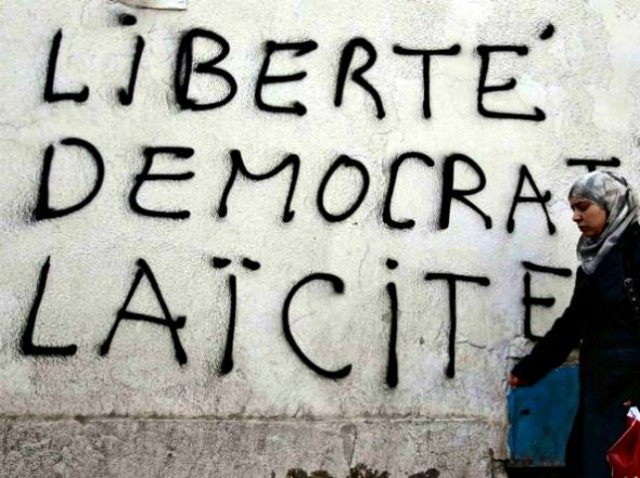In the face of growing tensions due to the violence spread in the name of God by Islamist jihadists, it can be tempting to simply try to stifle all religion, a temptation that the French bishops are calling “an illusion and a mistake.”
Ever since the French Revolution there has been an underlying public hostility toward religion and the Catholic Church in particular in France, which has resulted in a “laïcité” or public secularism tending to be wary of all religion.
On the occasion of the 110th anniversary of the 1905 law of secularism, the French bishops have published a statement in which they do not “challenge” this law that separates Church and State, but insist that attempts to eradicate religion from public life are misbegotten.
In their statement the bishops warn against a “current of thought in our country that would move from a secular state to the secularization of society. Some would like the whole of life in society to be secular and for believing citizens to neither express nor live their faith except in a strictly private space that is increasingly reduced or even hidden.”
The bishops are arguing against what Richard John Neuhaus called “The Naked Public Square” in his groundbreaking 1984 book of the same name.
In that book, Neuhaus warned against a creeping secularization that tended to move from the non-establishment of a confessional state church to the exclusion of religious values and faith-based arguments from all public debate and moral discourse.
“The notion that this is a secular society is relatively new,” Neuhaus wrote. “In a democratic society, state and society must draw from the same moral well. In addition, because transcendence abhors a vacuum, the state that styles itself as secular will almost certainly succumb to secularism.”
The French bishops are making a similar case in their statement. “To believe that limiting the expression of religious beliefs to the confined space of private life can promote social peace is an illusion and a mistake,” they write.
According to the bishops, the imposition of secularism against religious belief “rather favors the emergence of fundamentalist currents and behaviors that are fed from the feeling of being despised, rejected and ignored.”
In the statement, signed by the president of the French Episcopal Conference, Archbishop Georges Pontier, the bishops also point out the central part that the Catholic Church has exercised in French society.
“You cannot ignore or deny the role that the Church has played and is playing in key areas of the life of our country throughout its history and even now; that we engage in education, health, culture, social commitment, in family support, in the presence among young people and solidarity,” they wrote.
“The Christian faith promotes dialogue within French society,” they assert, and has “contributed to the recognition of the dignity of each human person, such as that of living together in a pluralistic society.”
“We must be vigilant in the exercise of state secularism and its respect for the different beliefs of citizens. We must avoid the stigmatization of believers, leading to a reduced ability to live and express themselves as citizens,” they declared.
Follow Thomas D. Williams on Twitter @tdwilliamsrome

COMMENTS
Please let us know if you're having issues with commenting.